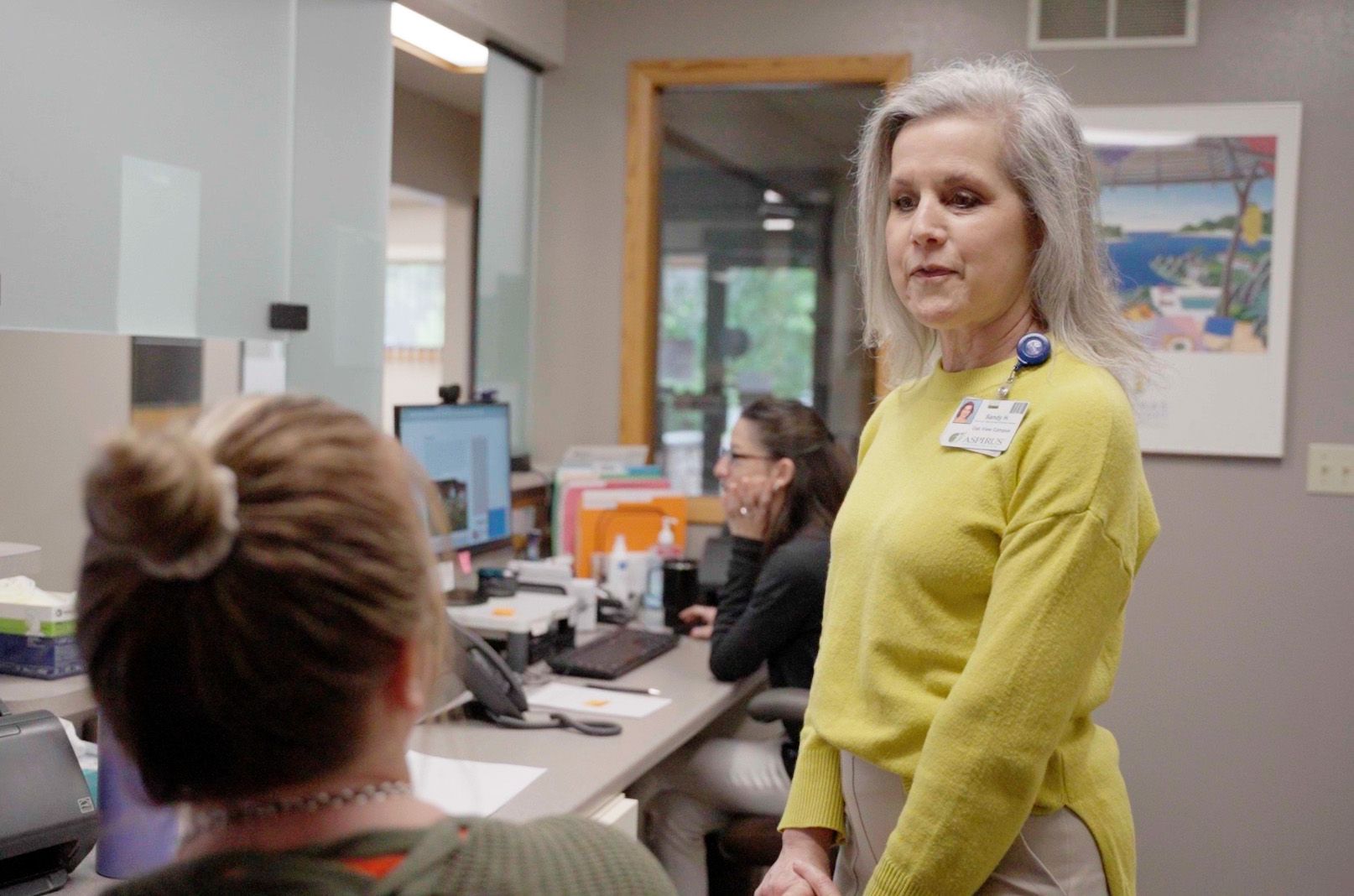Take Steps Towards Better Mental Health
5/30/2024

Sandra Holmes, Aspirus Therapist
Mental health is an
essential aspect of our overall well-being, yet it often remains misunderstood
and stigmatized. Understanding its importance and learning effective strategies
to manage mental health challenges can significantly improve our quality of
life.
The Connection
Between Mental and Emotional Health
“Mental health is
the cognitive and behavioral aspect that we help clients with to feel better
and express themselves more effectively,” explains Sandra
Holmes, MS, LPC, CSAC, a therapist with Aspirus Health. Emotional health,
on the other hand, is “what you feel comfortable doing,” or how one expresses
themselves based on the current state of one’s mental health and can be deeply
rooted in our upbringing and cultural background.
In short: When our
mental health is addressed, our emotional health tends to reap the benefits.
The Prevalence of
Mental Health Issues
Holmes points out
that mental health issues are more common than people realize.
“One in five adults
in the United States are diagnosed with mental illness each year," with
nearly $200 billion spent annually on serious mental health conditions.
“These are only cases that have been reported, but it's likely even more
prevalent," she says. That’s why it’s important to spread awareness,
during Mental Health Awareness Month and beyond, about the struggles many
people face and the steps that can be taken in support of their condition.
Daily Strategies for
Mental Well-being
Managing mental
health requires consistent effort and practical strategies. Holmes advocates
for the following daily actions:
1. Use Positive
Affirmations and Acknowledge Daily Achievements. Holmes suggests reflecting on
daily successes.
"What
went well today? You can pick one thing or as many as five," she advises,
noting that this practice can help counter self-criticism and boost
self-esteem.
2. Seek Support. Holmes
emphasizes the value of talking to trusted individuals or seeking professional
help.
"The
more you talk to people, the more you realize you're not alone," she
affirms, stressing the significance of therapy and consistent support.
3. Engage in Physical
Activity. Being active, even in small doses, can be beneficial.
"If
you're unable to move around, what can you do while seated to take care of
yourself?" she asks, encouraging any form of movement to improve mental
mood and overall well-being.
Breaking the Stigma
A significant
barrier to mental health care is the stigma associated with it. Holmes believes
that open conversations can help reduce this stigma.
"Talk to
people. The more you talk, the more the stigma starts to diminish," she
says. "Whether you're in your forties, fifties, sixties, or younger, it's
important to understand what anxiety and depression are," she emphasizes.
This recognition can help individuals feel less isolated in their experiences.
"You're not
alone, and there's nothing wrong with having a mental illness,” affirms Holmes.
She encourages everyone to reach out for help and to take care of their mental
health. By fostering open dialogue, seeking support, and embracing practical strategies,
we can better manage mental health challenges and support one another in the
journey toward well-being.
If you or someone
you know is struggling with mental health, don't wait—reach out to your
healthcare provider today. Taking the first step towards support can make a
significant difference in your well-being. Remember, help is available, and you
are not alone.

Back to all Posts